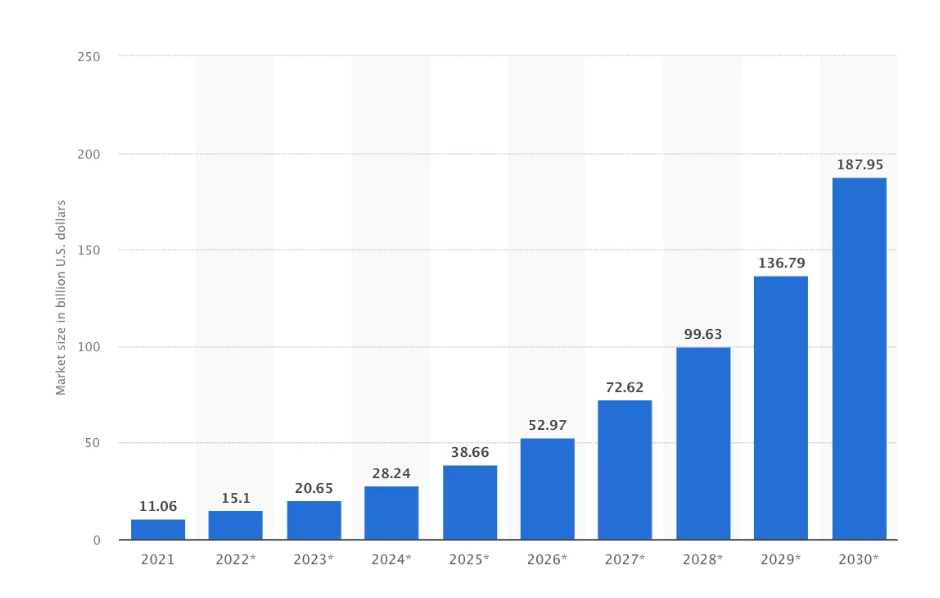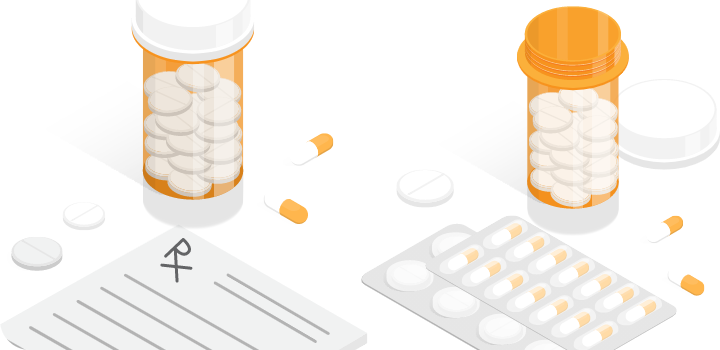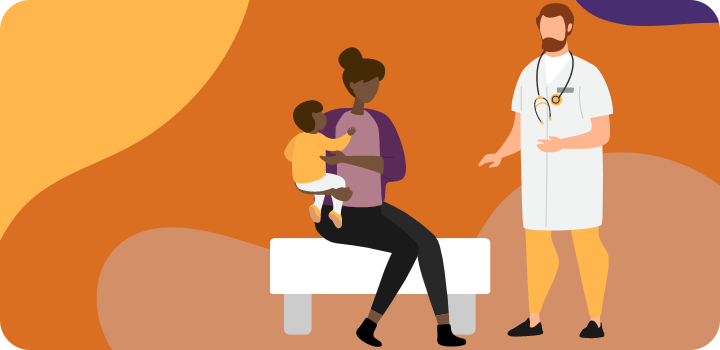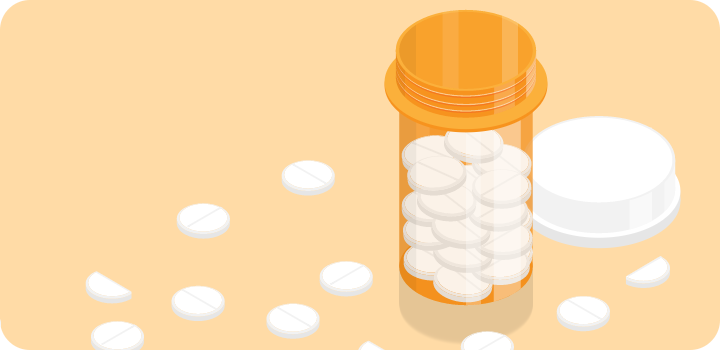AI in Healthcare - Part 1: The Future of Medical Diagnosis & Treatment
June 3, 2024 | 5 minute read
Imagine a world where robots perform surgery, AI diagnoses diseases with superhuman accuracy, and virtual assistants manage your medications. This, once the realm of science fiction, is rapidly becoming a reality thanks to Artificial Intelligence (AI).
The healthcare industry, burdened by rising costs, is embracing AI as a game-changer. AI and machine learning can analyze vast datasets of medical records, imaging scans, and genetic information to unlock a treasure trove of insights.
Quantified Patient: Data is King
Traditionally, healthcare relied on a doctor’s experience and intuition. AI brings a new dimension: data-driven medicine. Consider this:
- The average human brain can store 2.5 quintillion bytes of data.
- A single MRI scan can generate gigabytes of data.
AI algorithms can analyze this data much faster and more comprehensively than any human doctor, revealing hidden patterns and trends.
AI in Action: AI Applications in Healthcare
| Application | Benefit | Example |
|---|---|---|
| Disease Prediction | Early intervention for better outcomes | AI can analyze a patient's medical history, genetics, and lifestyle to predict their risk for diseases like cancer or heart disease. |
| Medication Adherence | Improved treatment effectiveness | AI-powered virtual assistants can send medication reminders, track adherence, and even identify potential side effects. |
| Treatment Optimization | Personalized care plans for better results | AI can analyze vast datasets of clinical trials and patient outcomes to recommend the most effective treatment for each individual. |
| Surgical Robotics | Minimally invasive surgery with improved precision | AI-powered robotic arms can assist surgeons with complex procedures, leading to faster recovery times and reduced complications. |
Impact of AI on Medication Adherence

Source: https://www.statista.com/statistics/1334826/ai-in-healthcare-market-size-worldwide/
The Future of Healthcare: A Brighter Horizon
The possibilities with AI in healthcare are endless. Imagine a future where AI:
- Diagnoses diseases earlier through advanced image analysis.
- Develops personalized medicine based on an individual’s unique genetic makeup.
- Automates administrative tasks, freeing up doctors’ time to focus on patient care.
From Humble Beginnings to Powerful Ally
AI’s foray into healthcare began with digitizing medical records and developing basic diagnostic systems. These early steps, while rudimentary, laid the groundwork for the sophisticated AI applications we see today. The key drivers of this revolution? Advanced algorithms, increased computing power, and the availability of vast amounts of healthcare data.
Fast forward to today, and AI is a game-changer. Its impact spans various medical domains, from diagnostics and treatment recommendations to drug discovery and administrative tasks.
AI in Action: Unveiling Possibilities
Imagine AI analyzing medical images with unparalleled accuracy, identifying diseases at earlier stages. This isn’t a dream; it’s happening now. AI-powered systems can also predict disease outbreaks, optimize hospital resource allocation, and even assist surgeons in complex procedures.
The rise of wearable devices and the Internet of Things (IoT) further empowers healthcare professionals by enabling remote patient monitoring. Patients, too, benefit from these advancements, taking a more active role in managing their health.
Beyond Clinical Applications: A Holistic Approach
AI’s influence extends beyond the clinical realm. It streamlines healthcare administration, reducing burdens, improving operations, and enhancing patient experiences. This frees up valuable time for medical professionals, allowing them to focus on what matters most: patient care.
The Power of AI in Specific Areas
- Enhanced Diagnostics: AI algorithms excel at analyzing medical images, spotting subtle abnormalities that might escape human eyes. This early detection is crucial for effective treatment and improved patient outcomes.
-
Potential Benefits of AI-powered Diagnostics
Benefit Description Example Improved Accuracy AI can detect abnormalities missed by human radiologists Earlier detection of cancers and other diseases Faster Analysis AI can analyze images much quicker than humans Reduced wait times for test results Personalized Insights AI can identify risk factors and treatment responses Tailored treatment plans for individual patients - Predictive Analytics: AI can analyze vast datasets to predict disease outbreaks, assess individual health risks, and optimize resource allocation. This proactive approach empowers healthcare providers to offer preventive care and personalized treatment plans.
- Personalized Treatment Plans: AI can analyze a patient’s genetic data to tailor medications and therapies for maximum effectiveness. It can also continuously monitor health data, making real-time adjustments to treatment plans for optimal results.
- Drug Discovery and Development: AI significantly expedites drug discovery by virtually screening millions of compounds and identifying promising candidates. It can also repurpose existing drugs for new uses and optimize clinical trial design.
Imagine a world where AI not only diagnoses diseases with superhuman accuracy but also designs personalised treatment plans based on your unique genetic makeup. Sounds like something out of a movie, right?
Well, that future might be closer than you think.
So, the question is: Are you ready for the AI healthcare revolution?

Women’s Health FAQs Answered: A Comprehensive Guide
As a woman, taking care of your health should be a top priority, but it’s common to have questions and concerns. That’s why we’ve compiled this comprehensive blog to address some of the most frequently asked questions around women’s health
May 22, 2024 | 10 minute read

Understanding Euthyrox® (Levothyroxine): Your Comprehensive Guide to Thyroid Health
May 15, 2024 | 5 minute read

Prioritising Heart Health: A Vital Guide for Women in America
In the bustling rhythm of American life, women often prioritize everyone else’s health over their own. Yet, here’s a sobering fact: heart disease is the leading cause of death among American women, surpassing all types of cancer combined.
May 3, 2024 | 5 minute read

Your guide to Healthy Living:
Managing Diabetes
Whether you’ve recently been diagnosed or have been living with diabetes for years,
Feb 19, 2024 | 5 minute read

Understanding a Drug’s Journey to Generic Production
In today’s healthcare landscape, the rising costs of prescription medications have become a significant
July 18, 2023 | 3 minute read

Revolutionizing Women’s Healthcare: Empowering Women’s Health with DiRx
Here at DiRx Health, we’re on a mission to empower women to take control of their health and well-being.
March 8, 2023 | 5 minute read

Five reasons every woman needs an annual visit with a primary care provider
May 10, 2022 | 3 minute read

Get relief from pollen allergies
Learn ways to help prevent pollen allergies and how to ease the symptoms
July 18, 2023 | 3 minute read

Introducing Kyzatrex: A safe, effective and painless option for Testosterone Replacement Therapy
Aug 14, 2023 | 4 minute read

Counting the Cost
The Financial Burden of Living with Chronic Conditions
May 16, 2023 | 3 minute read

3 ways to make filling a prescription easier
If you wish your pharmacy experience was a smoother and more pleasant one, here are a few ideas that can help
April 11, 2023 | 3 minute read

For the Love of Black History
Striving for a healthier future through accessibility
February 14, 2023 | 4 minute read

Falling out-of-network with your pharmacy
Why this happens and protecting your bottom line
December 13, 2022 | 5 minute read

Take control of your personal healthcare decisions
Options to consider for the new year
November 14, 2022 | 5 minute read

How parents can lighten the impact of the impending Adderall shortage
Tips from our DiRx Pharmacy Team
October 18, 2022 | 2 minute read

The HSA, HRA and FSA – understanding the difference
Are you taking full advantage of your benefit?
October 03, 2022 | 2 minute read

A pharmacist's perspective on the challenges patients are facing today.
An interview with Rima Arora, PharmD, RPh, Director of Pharmacy at DiRx
August 24, 2022 | 4 minute read

What can we do about the soaring cost of prescription medicine?
An interview with Satish Srinivasan, DiRx Founder and Chief Executive Officer
July 22, 2022 | 6 minute read

Is a prostate cancer screening right for you?
Learning more about prostate cancer screening risks and benefits can help you decide if it's right for you
June 8, 2022 | 4 minute read

How Safe is your prescription information online
Your prescriptions are part of your protected health information. Understand how it is used, shared and protected
May 25, 2022 | 3 minute read

Choosing an online pharmacy you can trust
Not all pharmacies are the same. Choosing one that you can depend on with your medicines and your health are important
April 13, 2022 | 3 minute read

5 reasons that choosing an online pharmacy may be right for you
Lots of people are discovering the benefits of choosing an online pharmacy for their prescription drug needs
March 30, 2022 | 3 minute read

Should you consider switching from brand-name to generics?
Being an informed healthcare consumer includes doing your homework when it comes to making decisions
March 16, 2022 | 3 minute read

EUTHYROX®, a branded
Levothyroxine is also available.
Tap here to know more
Buying Kyzatrex for the first time?
Use code FREETRIAL to get a 1 month supply of Kyzatrex for FREE






